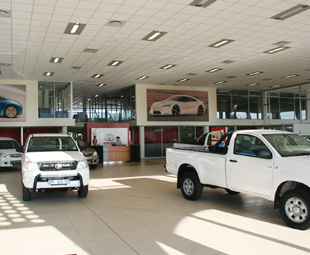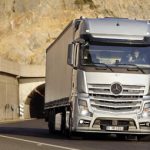Minimising costs is key

In fleet management, everything is about costs and survival depends on being able to reduce your expenditure. Nicholas de Canha, CEO of Imperial Fleet Management, explains how customers can manage this challenge.
What does Imperial Fleet Management do – and are you specialists in certain areas?
We operate in three major areas:
• We provide advice on fleet management, including the ideal vehicles and optimal running periods required to minimise fleet costs;
• We provide finance to enable firms to fund their fleets; and
• We provide the full array of value-added fleet management products to our clients to simplify the management of fleets. These include roadside assistance, fuel cards, licensing and registration and fines administration.
What does it mean to be a fleet manager in South Africa today and what are the challenges?
The South African vehicle market is a tough one. Due to certain external factors, vehicle prices remain stable for long periods, followed by steep price increases. This makes the value of a fleet vary substantially over time and exposes the fleet manager to significant risk when disposing of the vehicles.
In the South African context, other fleet management challenges include abuse of fleet structures such as fuel cards, maintenance, insurance and the like. Imperial Fleet Management offers products and management systems that reduce the risk of such incidents and improve monitoring capability.
How did the global economic crisis affect the fleet management industry? Are things looking up, or are you expecting difficult times ahead?
The global financial crisis of 2008 impacted credit markets around the world. Consumer credit contracted along with demand, putting many companies under strain. The knock-on effect of this was less lending to corporate customers and a period of lower profitability.
To some extent, this has now changed and we find that the consumer credit market, business confidence and the appetite to lend to corporate customers has improved. However, the current instability in global markets is making the cost of borrowing higher again. The current weakness in the rand, which may be related to that, will lead to serious issues in South Africa if it is not resolved soon.
What are the challenges faced by fleet owners? Rising fuel prices and the challenge of “green” transport seem to be among them?
Fleet owners are understandably concerned about costs and Imperial Fleet Management can help by selecting the vehicle best suited to the owner’s application. Generally, though, “green” transportation and “green” fleets in the South African context are challenging and will remain so for some time to come.
Many manufacturers do not offer more environmentally-efficient Euro-4 or -5 engines as the upfront costs are too high. In addition, the current CO2 tax is a linear one which imposes a near-uniform 2% price increase at all levels, and is therefore ineffective at penalising polluting vehicles versus non-polluting ones.
How do you see the future of Imperial Fleet Management?
Imperial is the largest vehicle dealership group in South Africa, selling approximately one in five vehicles in the country. As such, we would expect a similar share of the fleet market. Already Imperial Fleet Management provides access to passenger, light-medium and heavy commercial vehicles, so our ability to service our customers is very good.
Published by
Focus on Transport
focusmagsa



